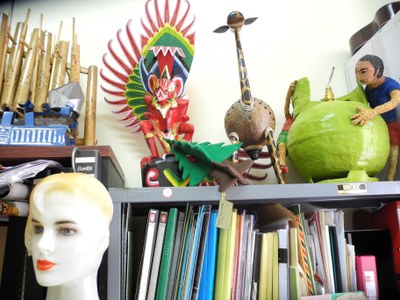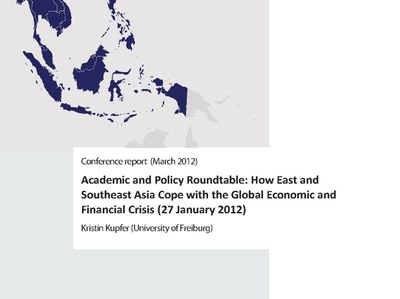News & Events
TEACHING | Courses on Southeast Asia in the Summer Term 2012
The departments of Political Science, Cultural and Social Anthropology, Economics and History of Freiburg University are offering several courses on Southeast Asia in the upcoming summer term.
LECTURE | Prof. Schlehe: "New Cosmopolitanism in the Popular Spirit(ual) World "
The lecture by Prof. Dr. Judith Schlehe on "New Cosmopolitanism in the Popular Spirit(ual) World" was held in Jawaharlal Nehru University at the International Conference on "Studying Social Sciences in the Era of Globalisation", New Delhi, India, 30 March - 02 April 2012.
NEW PUBLICATION | S. Rother: Wendt meets East: ASEAN cultures of conflict and cooperation

(...) This article proposes a ‘via media’: a theoretical approach that can be applied to Western and non-Western IR alike, taking into consideration the specific historical, ideational and cultural contexts. Based on social constructivism as developed by Alexander Wendt, it is argued that the existence of a collective identity among states in a given region can manifest itself in distinctive logics or cultures of anarchy. These are based on norms of conflict or cooperation that can be established through interaction, can be proposed by outside agents and localized, or can be affected by the re-negotiation of state identity caused by domestic events. In addition, there are cultural path dependencies: norms rooted in the cultural memory or consciousness of a region which tend to be ignored by interpretations that merely focus on current events or established Western models of cooperation. Area studies can contribute to provide this context.
-
Publications




The ‘gold standard’ for labour export? The role of civil society in shaping multi-level Philippine migration policies.
- Author: Rother, Stefan
- Third World Quarterly, 2022
- More information...
- Journal Website
Why Asian states cooperate in regional arrangements: Asian regionalism in comparative perspective.
- Authors: Panke, Diana; Rüland, Jürgen
- International Relations, 2021
- More information...
- Journal Website
Indonesians and Their Arab World: Guided Mobility among Labor Migrants and Mecca Pilgrims.
- Author: Lücking, Mirjam
- Cornell University Press, 2021
- More Information...
- Publishing Website
Subnational favoritism in development grant allocations: Empirical evidence from decentralized Indonesia.
- Author: Gonschorek, Gerrit J.
- World Development, 2021
- More information...
- Journal Website











